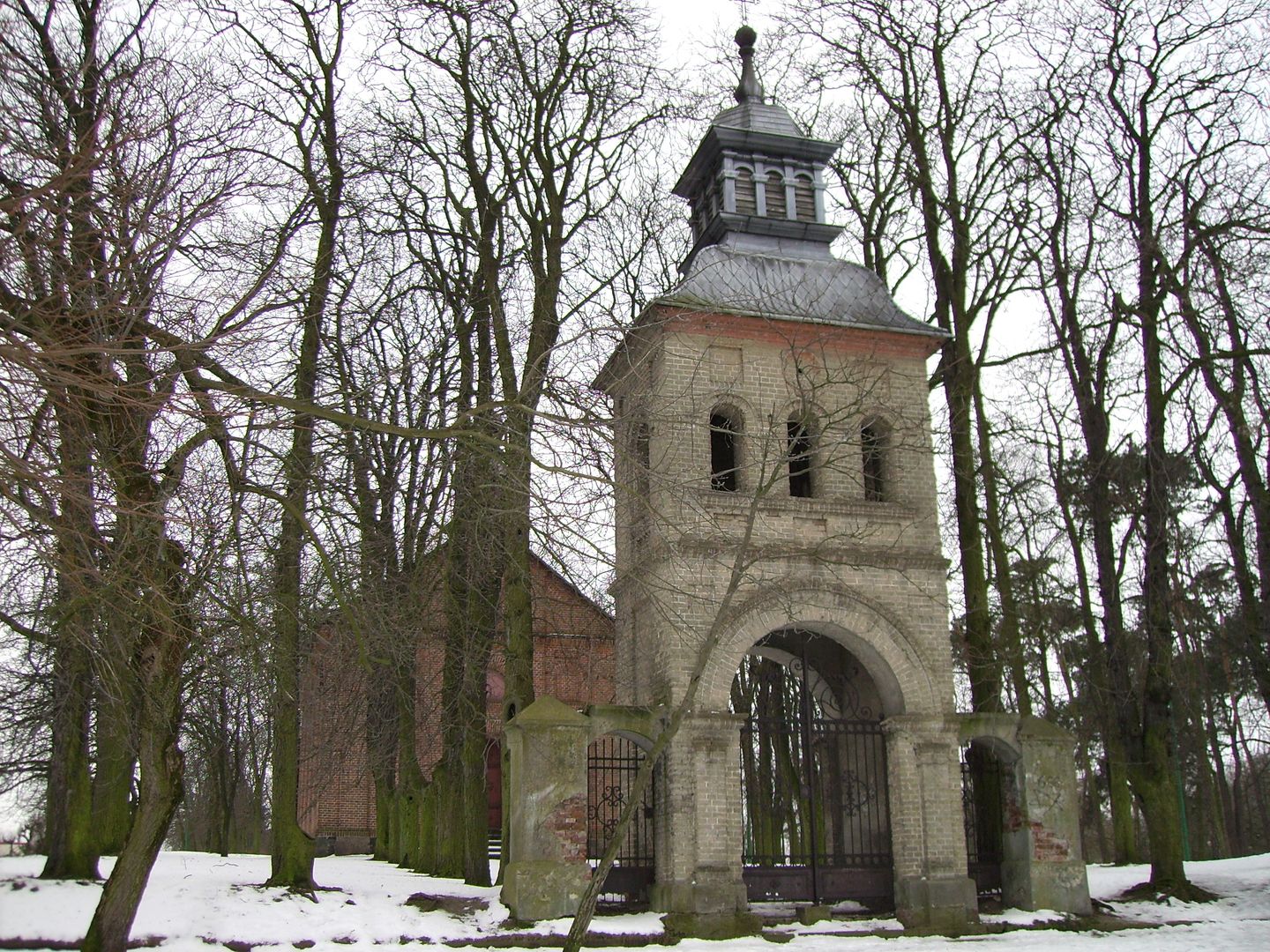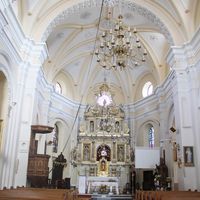Poddębice
6.01

Overview
Poddębice, a town in the Łódzkie Voivodeship situated on the Ner River, boasts a rich history dating back to at least the 14th century when it was granted town rights. Originally associated with noble families, the town underwent administrative changes throughout its history, including its incorporation into the Third Reich in 1939. During the interwar period, Poddębice was home to a significant Jewish community, whose fate ended tragically during the Holocaust. The town preserves numerous historic monuments, including a Renaissance palace built by Zygmunt Grudziński, featuring beautiful cloisters and a chapel adorned with frescoes. Another important site is the 17th-century Church of St. Catherine, distinguished by its stucco decorations and Baroque altar. Poddębice is also home to an Evangelical church from 1871, now serving as a concert hall. The town's cemeteries—Catholic, Evangelical, and Jewish—are also noteworthy, though traces of the past are rapidly disappearing. The natural surroundings are equally fascinating, with the Ner River, once heavily polluted, now gradually recovering. Since 2007, the area around the Ner has been designated as the Poddębice Landscape and Nature Complex. The town promotes tourism by offering hiking trails, including the Maria Konopnicka Trail and the "Hot Springs" Trail, which attract both tourists and locals. Cultural institutions such as the Poddębice Cultural Center, libraries, and a thermal water spa operate within the town. Sports play a significant role thanks to the local football club, LKS Termy Poddębice. Residents also have access to educational facilities, including a primary school and the Maria Konopnicka High School. The complex and tragic Jewish history of the town remains a testament to the multilayered local culture and heritage. Combining history, architecture, and cultural activities, Poddębice is an important point on the regional map.
Location
You can also find here:
2026 Wizytor | All Rights Reserved
